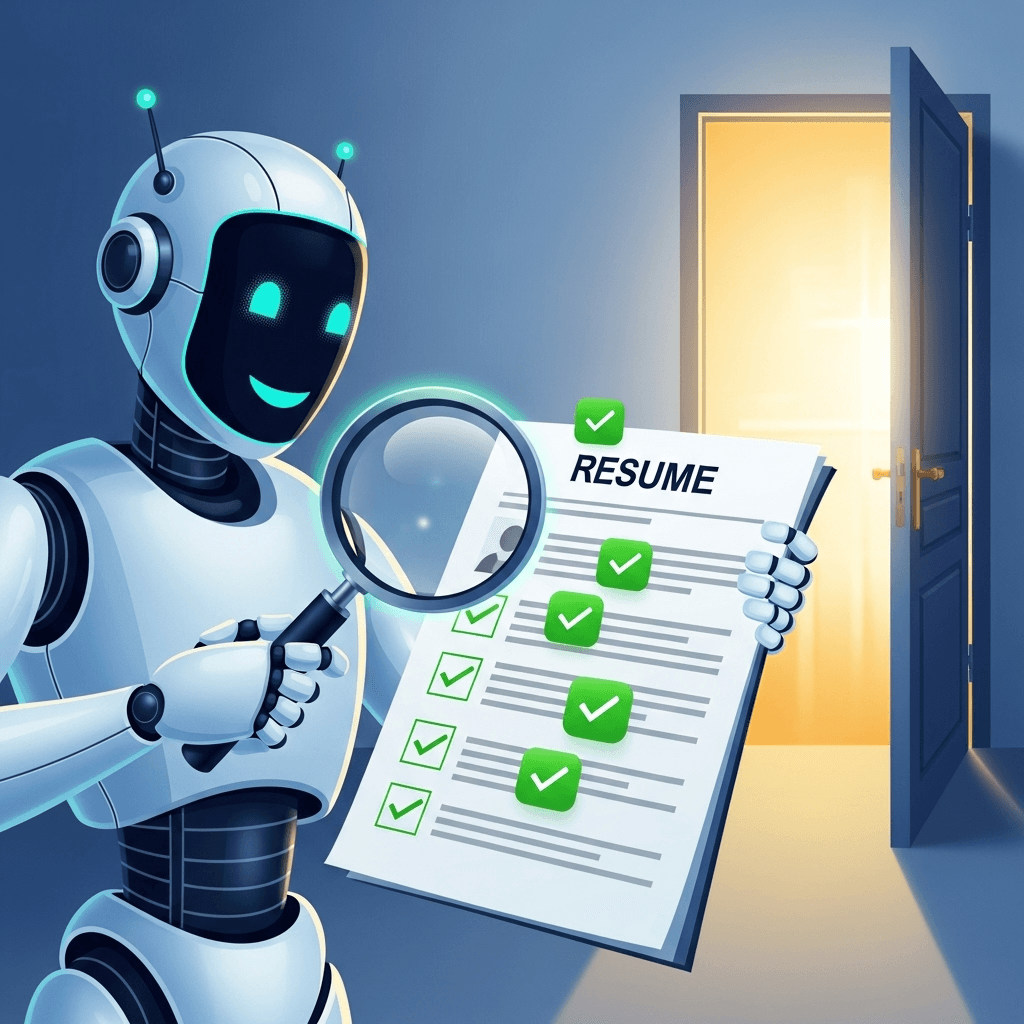What is a Personal Brand and Why You Need One (Even If You're Not an Influencer)

When you hear the term "personal brand," your mind might immediately jump to social media influencers with millions of followers or celebrity CEOs who are household names. It’s a concept often associated with self-promotion and being in the public eye. However, this perception misses the true power of personal branding for every professional, regardless of their field or follower count. In reality, you already have a personal brand; the only question is whether you are intentionally shaping it.
Fundamentally, a personal brand is your professional reputation. It's the story people tell about you when you're not in the room. It’s the unique combination of your skills, experiences, and values that you bring to the table. Therefore, actively managing your personal brand isn't about being fake or boastful; it's about taking control of your career narrative and ensuring your professional identity accurately reflects your true value. This article will demystify the concept and provide a clear roadmap for building a brand that opens doors.
What is a Personal Brand, Really?
Think of it this way: companies have brands to communicate their promise to customers. Volvo promises safety. Apple promises innovation. Similarly, your personal brand is your promise to a potential employer, client, or collaborator. It answers critical questions like:
What problems do you solve?
What are you an expert in?
What makes you different from others in your field?
What are your core professional values?
In essence, your brand is the "symphony in your noise"—it’s the clear, compelling message that rises above the static of a simple job title or a list of past duties. It’s about communicating your unique value proposition with clarity and consistency, both online and offline.
Why Every Professional Needs a Strong Personal Brand
In today's hyper-competitive job market, a strong personal brand is no longer a "nice-to-have"—it's an absolute necessity. Recruiters and hiring managers don't just look at your resume anymore; they Google you. They look at your LinkedIn profile. Consequently, a well-defined brand gives them a cohesive, professional story.
Here’s why it matters:
It Builds Trust and Credibility: A consistent and professional online presence demonstrates expertise and builds trust before you even step into an interview.
It Attracts Opportunities: Instead of constantly searching for jobs, a strong brand can make opportunities find you. Recruiters looking for experts in your field will be more likely to discover your profile.
It Differentiates You: In a sea of qualified candidates, your personal brand is what makes you memorable. It helps you stand out from the crowd and avoid being unfairly filtered out by automated systems.
It Gives You Control: If you don't define your brand, others will define it for you based on scattered information online or workplace gossip. Proactively building your brand puts you in the driver's seat of your career.
How to Build Your Personal Brand: A Step-by-Step Guide
Building a personal brand feels like a daunting task, but it can be broken down into manageable steps. It’s a marathon, not a sprint, focused on authenticity and consistency.
Step 1: Define Your Professional Identity (The Foundation)
Before you can showcase your brand, you must first understand what it is. This requires honest self-reflection. Grab a notebook and answer these questions:
What are my core strengths? List your top 3-5 skills, both hard (e.g., Python, financial modeling) and soft (e.g., strategic communication, team leadership).
What am I passionate about? What aspects of your work genuinely excite you? This passion is contagious and a core part of your brand.
What problem do I solve for others? Frame your experience in terms of solutions. For example, instead of "I manage social media," think "I help B2B companies build engaged communities that drive leads."
Who is my audience? Are you trying to reach hiring managers in the tech industry? Potential freelance clients? C-suite executives? Tailor your message accordingly.
After this reflection, try to craft a concise personal brand statement. For instance: "I am a project manager specializing in sustainable construction, dedicated to delivering projects that are both on-budget and environmentally conscious."
Step 2: Curate Your Online Presence (The Showcase)
Your LinkedIn profile is your professional brand's headquarters. It's often the first impression a recruiter or networking contact will have. Accordingly, it needs to be more than just a digital resume.
Professional Headshot: Invest in a clear, high-quality photo where you look professional and approachable.
Compelling Headline: Don't just put "Marketing Manager at ABC Corp." Use this valuable space to incorporate your brand statement. E.g., "Marketing Manager | Driving Growth for SaaS Startups Through Data-Driven Content Strategy."
Engaging "About" Section: This is your chance to tell your story. Write in the first person, explain the "why" behind your work, and weave in your key skills and accomplishments.
Request Recommendations: Social proof is powerful. Ask former managers or colleagues to write a recommendation that speaks to your specific strengths.
Step 3: Showcase Your Expertise (The Proof)
Defining your brand is one thing; proving it is another. You don't need to start a blog or a podcast to be a thought leader. Instead, you can leverage platforms like LinkedIn to share your knowledge consistently.
Share Relevant Content: Find an interesting article about a trend in your industry. Don't just hit "share"—add a few sentences with your own perspective or a question to spark discussion.
Post Your Own Insights: Write short posts (3-5 paragraphs) about a recent challenge you overcame, a project you’re proud of, or a lesson you learned. This provides a genuine window into your expertise.
Engage Thoughtfully: Comment on posts from other leaders in your field. Go beyond "Great post!" and add to the conversation with your own insights. This increases your visibility and builds your reputation.
From a Strong Brand to the Perfect Application
You’ve done the hard work. You’ve defined your brand, polished your LinkedIn profile, and started building a reputation as an expert. Now, how do you ensure this powerful new brand isn't lost in the void of the online application portal? This is where your brand confronts the frustrating reality of modern hiring: the 6-second CV scan.
Many companies use Applicant Tracking Systems (ATS) that algorithmically scan your resume for keywords, often discarding highly-qualified professionals before a human ever sees their application. Your carefully crafted brand can be unfairly filtered out by a flawed system. But what if you could fight fire with superior fire?
This is precisely why we created Best CV "52". We are the resistance against lazy, algorithm-driven recruitment. We believe your career is worth more than a 6-second scan. Our service arms you with a comprehensive, AI-powered arsenal for every single job application. When you provide your CV and a job description, we don't just tweak it; we generate a complete application package designed to beat the ATS and impress the hiring manager:
A Perfectly Tailored CV & Cover Letter: Surgically rewritten to align with the job's requirements and the known biases of their ATS.
Strategic Communication Templates: Professional emails and LinkedIn messages designed to get replies from hiring managers.
A Corporate Dossier & SWOT Analysis: We dissect the company and provide you with a personal SWOT analysis for the role, so you can speak their language.
The Interview Arsenal: A customized prep guide with tailored questions and talking points to transform your experience into an undeniable match.
Your personal brand gets you noticed. Best CV "52" ensures you get the interview you deserve. Stop playing a rigged game. It's time to join the resistance.
Quick Q&A: Your Personal Branding Questions Answered
Question: In simple terms, what is a personal brand?
Answer: Your personal brand is your professional reputation. It's the combination of your skills, values, and experiences that defines the unique value you offer. It’s the story people tell about your professional capabilities.
Question: Why do I need a personal brand if I'm not looking for a job?
Answer: A strong brand isn't just for job hunting. It builds credibility within your current role, attracts networking opportunities, positions you for internal promotions, and can even lead to speaking engagements or freelance projects. It's about long-term career management.
Question: What's the most important first step?
Answer: The most crucial first step is self-reflection. Before you can build your brand externally, you must define it internally. Understand your core strengths, passions, and the specific problems you solve for others. This foundation makes all other steps authentic and effective.
Question: Does building a brand mean I have to be constantly "selling" myself?
Answer: Not at all. Authentic personal branding is about showing, not just telling. It's about generously sharing your expertise, engaging in meaningful conversations, and helping others. The "selling" happens naturally as people come to recognize and trust your value.
Building your personal brand is one of the most powerful investments you can make in your career. It’s an ongoing process of defining your story, showcasing your value, and building a reputation that precedes you. Start today, be authentic, and take control of your professional narrative.
